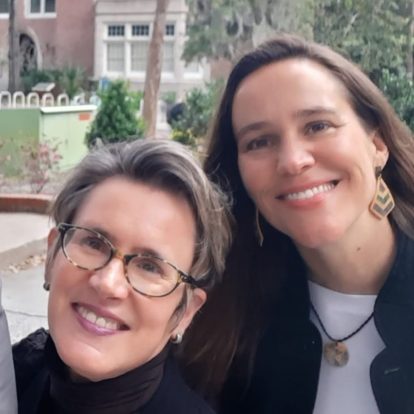
Professor Libby Ginway and then-graduate-student Andréa Ferreira first piloted a class on favelas — Brazil’s low-income communities — as the theme of the culture course in the six-week study abroad program in Rio de Janeiro during Summer B 2010. Rio was a logical setting for the class, since favelas are visible near the airport and throughout the hills surrounding the city, and students regularly expressed curiosity about these communities. Local specialists in anthropology, environmental history, music, religion, and photography were invited to class to present to the students that summer.
The course was a success, and continued in future summers. It was especially meaningful during the summers of 2014 and 2016, when both the World Cup and the Olympics were hosted in Brazil. In Rio, students saw firsthand the impact of the games through the evictions from favelas and the militarization of the police as incursions were made into these communities in the name of security.
In Fall 2016, Dr. Ginway taught a version of the course in English, cross-listing it with Latin American Studies. She introduced students to a wide range of readings, from urban studies and anthropology to history, crime and governance, in order to provide a solid background and historical perspective, and to avoid the sensationalized violence of films such as City of God (2002). She then used fiction, film, and studies on tourism to examine issues surrounding the “gaze” and issues of power and spectacle. Finally, they examined daily life in music, dance, and visual arts — especially graffiti and photography—as a means of expression, therapy, and activism. For the final course project, each student presented a final paper on favelas from his or her disciplinary interest: the topics included health and educational systems, Brazilian soap operas, film and activism through art, issues of crime and justice and gated communities, families and youth, and the role of NGOs (non-governmental organizations). According to Dr. Ginway, this was by far the most satisfying part of the class, as students proved they had assimilated complex issues that affect the social reality of these communities and their role in Brazilian society.
Dr. Ginway is teaching the course again in Fall 2019 and has invited Rio community activist Theresa Williamson, who regularly tours U.S. campuses, to her class later this semester.
View Previous Editions of the Spanish and Portuguese Studies Newsletter